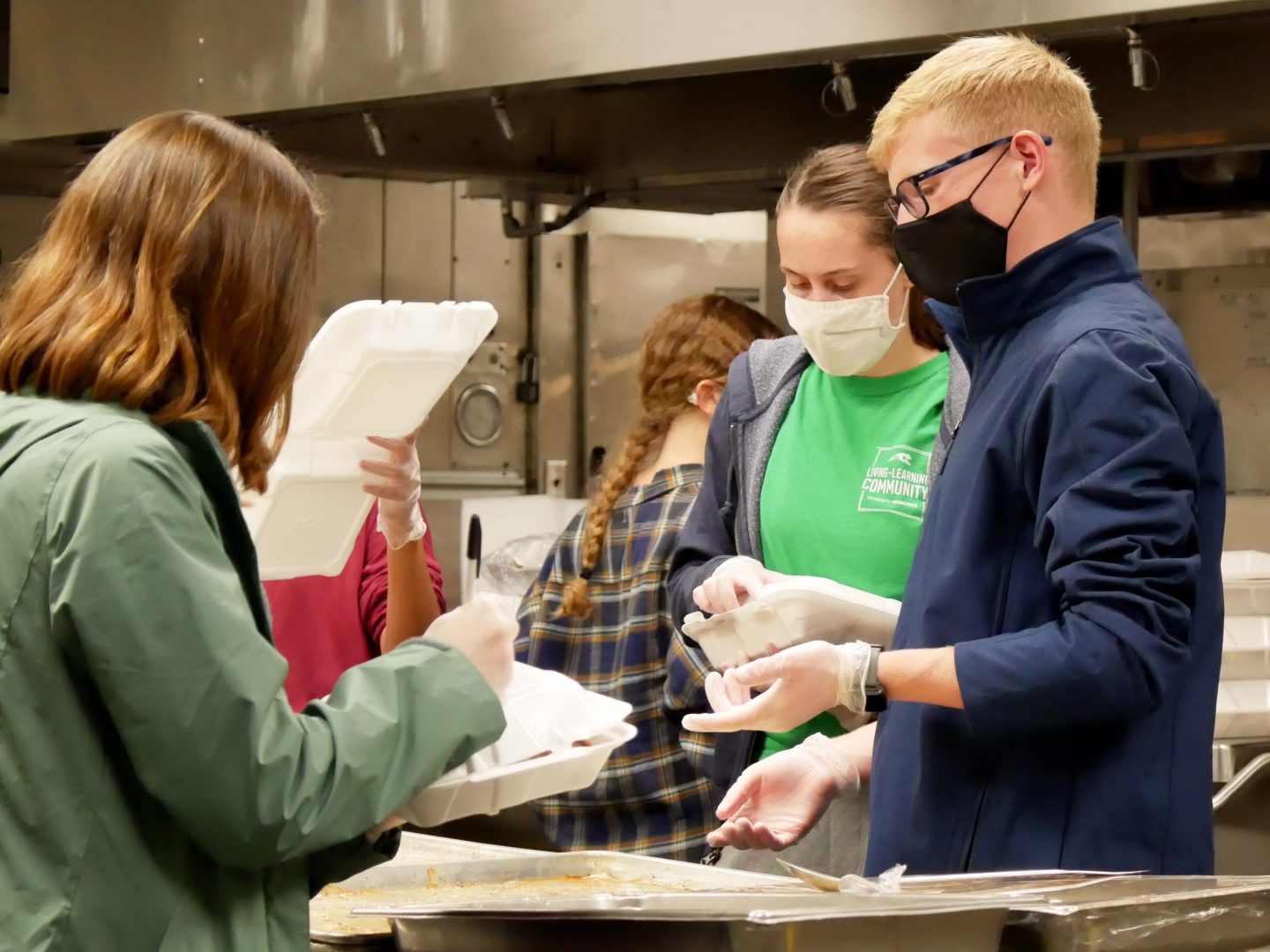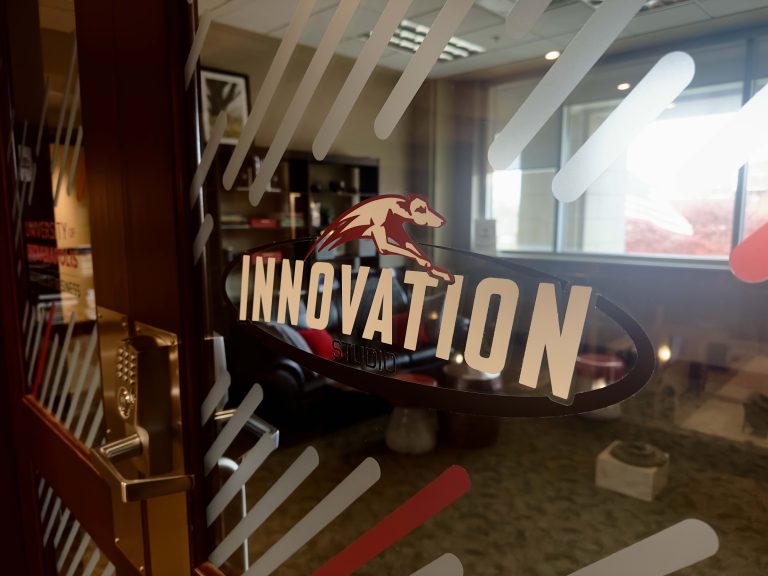Every Monday and Thursday, Food Recovery Network President and senior exercise science major Delaney Patterson meets a group of individuals outside the University of Indianapolis bookstore and heads into the dining hall to package the unused food. They package the food in containers and then the board members drive them to the two shelters that the food is donated to. This is the routine of the UIndy Food Recovery Network chapter.

Food Recovery Network is an organization not only available at the University of Indianapolis but nationwide. It allows students to get involved with feeding people in need at shelters while also earning a community service hour through the club at the university, according to the website. Patterson said they help feed two shelters and the food that they donate comes directly from the university’s dining hall because the shelters know it was cooked properly.
“We are able to do that because the food is coming from the university so they know the food is prepared properly and safely. If I cooked up a meal, I wouldn’t be able to donate it just because they are not exactly sure how we cooked it,” Patterson said.
Patterson said that the group meets outside the bookstore on Mondays and Thursdays at 7 p.m. After they sign in, they are let in the dining hall where they start the food recovery process. Senior exercise science major and Treasurer of Food Recovery Network Dierdre McGill said that the process only takes around 15 minutes and afterwards the board members drive the food to the two shelters.
“You are constantly doing something which is nice, and it only takes like 15 minutes out of your time and you’re getting a whole service hour for it,” McGill said.
According to the Food Recovery Network’s website, it is the largest student-led movement against fighting food waste and working to end hunger in America. Over the next few years, the movement against fighting hunger throughout the network is expected to grow into more campuses around the United States, according to their website.
“Wheeler Mission” is a shelter that the Food Recovery Network provides food to from the dining hall, Patterson said. The Wheeler Mission offers shelter to those in need. According to their website, they are one of the oldest operating ministries within Indiana, it is also the largest and most diverse shelter in the state. Patterson said that it is very convenient to donate to them because they are open 24 hours.
The other shelter that they provide to is called “Partners in Housing” and it is located on Washington Street in downtown Indianapolis. According to their website, they accept everyone and most of their housing is for people who experience past trauma, addiction and people who have mental or physical disabilities. Patterson said that they are a good shelter to provide to because they always have smiling faces, as well as being lined up outside before they even arrive.
“They are so grateful that we come each time and they always thank us. It’s just a very wonderful rewarding experience,” Patterson said.
According to Patterson, being president of the group for almost three years has shown her how to become more of a leader, has taught her how to take charge and to be able to take feedback from others. She said she has learned a lot over the years that she has been involved within the organization.
“I think that’s the most important thing and just learning to respect others that don’t have the same resources as you do,” Patterson said.
McGill said she joined the Food Recovery Network because she likes to see the smiling faces of the people she gets to help at the shelters. She said that she likes to see the people she impacts while donating the food.
“I really liked the idea of doing it twice a week, it’s more of an active volunteer hour,” McGill said. “It’s not like you do it once a month or just meetings, it’s more hands-on.”
According to Patterson, the university has been a part of the Food Recovery Network since 2015. Patterson said if anyone wants to get involved within the club, they are advertised within emails from Vice President for Student and Campus Affairs and Dean of Students Kory Vitangeli.








